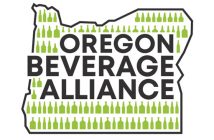In Washington, and soon-to-be Oregon since the passage of Measure 91, construction workers and employees may legally possess and use marijuana. What does that mean for the job site?
Although construction workers and employees may now legally possess and use marijuana, nothing under Washington or Oregon law permits any worker or employee to possess or use marijuana while he or she is on the job.
Considering substance use is recognized as prevalent among construction workers, employers such as general contractors, developers and owners should take necessary and appropriate steps to prevent employees from operating dangerous and complex machinery, performing construction work, and otherwise completing construction-related tasks while under the influence of marijuana.
Despite the new marijuana laws, employers and contractors continue to have an obligation to provide a safe work place and the right to drug and alcohol test employees.
A thornier question is whether to allow someone to work on a construction site who is not currently under the influence of marijuana, but otherwise tests positive because of recent drug use (e.g., the night before). Unlike alcohol, where the degree of impairment is based on predetermined blood alcohol levels through a breathalyzer test, it is difficult to establish the relationship between a person’s THC (the chemical component in marijuana potentially impairing performance) blood levels and impairment.
As it stands now, however, provided that drug testing is uniform and not executed in a discriminatory manner, an employee who tests positive for drugs in violation of established company policy may be, and should be, removed from the job. Regardless of whether it is legal or not, OSHA and insurance companies are not going to allow someone to work on a construction project that has tested positive for drug use.
Don’t let your project go up in smoke: Marijuana is now legal in Washington and soon-to-be in Oregon, so there will likely be more employees with THC in their blood than ever before.
Consequently, you can and should include a “drug-free job site” clause in your subcontract and require subcontractors to confirm their employees are drug-free while on the job. Have a clear and uniform drug testing program and procedure and communicate it to your employees and subcontractors.
Check your Employee Handbooks and Safety Manuals and be sure they clearly notify employees of your substance abuse policies, drug and alcohol testing procedures, and the potential consequences of a failed test. Even under a legal marijuana regime, employers may still prohibit marijuana use. As questions arise, as they always will, consult with experienced counsel.
Peter Hicks is Special Counsel at Ball Janik LLP’s Bend office. His practice focuses on litigation with a particular emphasis on employment matters and complex commercial litigation. phicks@balljanik.com.
Jacob Zahniser is an attorney at Ball Janik LLP’s Portland office. His principal areas of practice are construction law and commercial litigation. jzahniser@balljanik.com.
Visit www.constructionlawwatch.com [1] for similar articles and balljanik.com for information on the firm.





